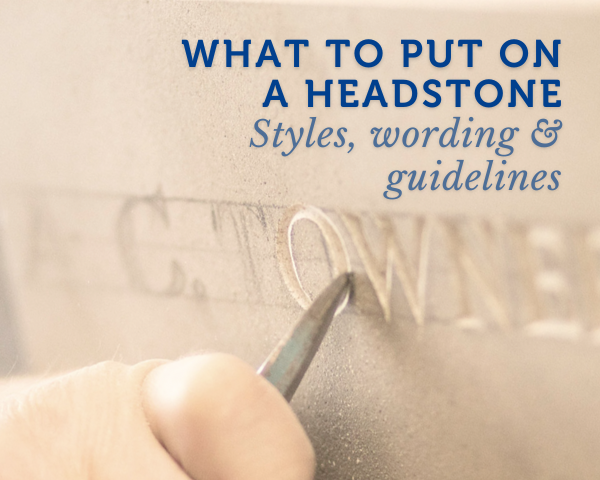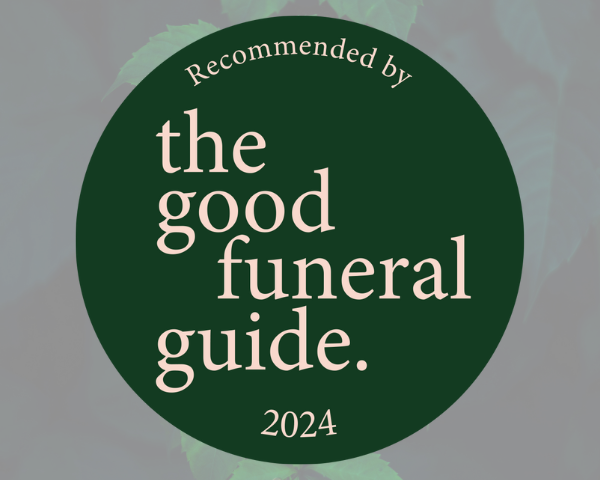Frequently Asked Questions
What do I have to do after someone dies?
FuneralAdvice.org is a really helpful source of information.
The Government's DirectGov website also has a great deal of useful information which, additionally, is available in booklet form from us.
My wife was not a religious person, so although we want a decent funeral for her she wouldn't have wanted a clergyman she had never met standing up and saying a lot of things which would have been meaningless to her. Do you have to have a religious ceremony at a funeral?
No. There is no reason why the funeral ceremony for a person with no religious belief should not be meaningful and moving. In these circumstances a secular funeral officiant would take the place of the clergyman to conduct the ceremony. He or she would work closely with the family to create the service that was right for them and for the person who had died. A typical secular service would include poetry, music and a brief address acknowledging the deceased person's life, character, and achievements. If wished a relative or family friend could speak. The British Humanist Association can provide secular funeral officiants. It is also important to realise, however, that you are not restricted to the ‘black and white’ choice of a ‘religious’ or ‘non-religious’ funeral: many people, while not considering themselves religious, still believe in life after death and still want the ceremony to reflect this. There are men and women available (most being ordained clergy) who are willing to officiate at a funeral, putting their own specific beliefs to one side and empathising with the bereaved to provide a ceremony sympathetic to their needs.
I have heard that the cremation ashes I receive from the crematorium will not necessarily be those of my loved one. Is this true?
Absolutely not. The cremation process is governed by very strict rules and regulations. The crematorium authorities take the greatest care to ensure that every individual cremation is kept a completely separate process.
Instead of people sending flowers to my funeral I think it would be nice if people made donations in my memory to a charity. Can the funeral director look after this?
Yes. The easiest way for people to make a donation in memory of your loved one is for us to create a tribute page to them on our website (free of charge). This enables family and friends to donate direct to the selected charity or charities securely online through MuchLoved.com, the leading tribute website service. The family can also take editorial control of their tribute page to add messages, thoughts, photos, videos and music or even light a virtual candle. At any stage you can see a list of donors online and the total amount received.
Alternatively, people can always call us or call in to make a donation by card or send a cheque to us which we keep safe until all the donations have been received. Each donation is acknowledged on your behalf by us in a letter to the donor. We then write to the charities concerned enclosing the donations and write to you to advise the total received, enclosing a list of the people who have sent a donation.
Is there any State help towards the cost of the funeral?
Yes, but it is a means-tested benefit and it is based not on the finances of the deceased but on the finances of the person who is responsible for paying for the funeral (usually the person instructing the undertaker). If the person who is responsible for paying for the funeral is receiving one of the qualifying benefits (see below) then they may be eligible to make a claim for a Funeral Payment from the Department for Work and Pensions' Social Fund.
Qualifying Benefits:
- Income Support
- Income-based Jobseeker’s Allowance
- Income-related Employment and Support Allowance
- Pension Credit
- Housing Benefit
- The disability or severe disability element of Working Tax Credit
- One of the extra elements of Child Tax Credit
- Universal Credit
The payment will contribute £700 towards our fees and the minister's fee and a further sum to cover any other reasonably-incurred disbursements. Your funeral director will be able to advise fully on the cost of the funeral and what constitute 'reasonably-incurred disbursements'. Additional services we provide beyond what is covered by the £700 Social Fund payment have to be met privately. Further details can be found in the D.W.P. leaflet 'What to do after a death' which is available from us.
Form SF200 from the Department for Work and Pensions is needed to apply for a payment from the Social Fund.
As well as making a claim for a payment from the Social Fund, the person responsible for paying for the funeral could also apply for a loan under the DWP's Budgeting Loans Scheme. If the applicant has been getting Income Support, income-based Jobseeker’s Allowance, income-related Employment and Support Allowance, Pension Credit or payment on account of one of these benefits or entitlements for at least 26 weeks, then they can apply for an interest-free loan. It would have to be repaid but this can be over 104 weeks (about 8 and a half years).
Form SF500 is needed to apply for a loan under the DWP's Budgeting Loans Scheme.
Our payment terms for funerals where the client is making an application to the DWP for a payment from the Social Fund are: The difference between the amount we estimate the DWP may pay and the total cost of the funeral must be paid three working days before the day of the funeral. If this payment is not received the funeral cannot go ahead.
I have heard that if you die suddenly the Coroner has to carry out an investigation. What does this involve?
If a person dies and their doctor is not sure about the cause of death, he or she is obliged to report the death to the Coroner. If the death was sudden or unexpected or unnatural, or if no doctor had been in attendance during the last illness, it must also be reported to the Coroner.
If the death is reported to the Coroner he may look at the circumstances and decide that he does not need to be involved and that the doctor can issue a death certificate. In this case the Coroner sends a certificate to the Register Office saying he has been informed of the death, that he does not need to investigate the death further, and giving permission for the death to be registered. In these circumstances before you go to the register office to register the death you must check with them that they have received this certificate from the Coroner otherwise you will have a wasted journey.
Sometimes the circumstances will demand that the Coroner must instruct an autopsy to be carried out to determine the cause of death. In this case, and for deaths in this part of East Sussex, the deceased must be conveyed to the Conquest Hospital mortuary.
Once the pathologist has determined the cause of death he or she will send a report to the Coroner who will decide the next step. Usually once a cause of death is established the Coroner will release the body as soon as possible. If the family want a cremation he sends a certificate to the funeral director saying the cremation can go ahead and a certificate to the Register Office saying the death can be registered. If the family want a burial he sends a certificate to the Register Office saying the death can be registered, and when the family have done this they must deliver the green certificate for burial (which the Registrar gives them) to the funeral director. The normal time-scale for all this would be: death - day 1; autopsy conducted on the morning of day 2; clearance certificate arrives at Register Officeabout 11:00 a.m. on day 3.
If a clear cause of death does not show up at the autopsy the pathologist may have to send medical samples away for histology tests. This can result in a delay before the body is released (usually about a week).
For deaths resulting from violence or an accident, as well as asking for an autopsy, the Coroner will also call for an inquest to be held. This is an informal court hearing to look into the facts surrounding the death. He will normally open and immediately adjourn an inquest which allows the body to be released for the funeral. The re-opened inquest can be held several weeks later. When there is an inquest you may not visit the Register Office to obtain copies of the entry in the register until after the inquest is finally closed. However, to enable you to begin to administer the deceased's estate the Coroner can issue you with an interim death certificate.
The Coroner for East Sussex is Mr Alan Craze, a local solicitor. Your normal point of contact for liaising with the Coroner is via the Coroner's Officer, whom you can contact on 01273 404646.
The Home Office Guide entitled 'The Work of the Coroner' - which is available from us - explains the role of the Coroner in more detail.
Are you able to carry out funerals for people of different faiths?
We are proud that, for many years, we have been entrusted with the funeral arrangements by families from all the main faith groups including all the Christian denominations and people of the Jewish, Moslem, Hindu and Buddhist faiths. We have the experience, and the facilities, to ensure their loved ones are laid to rest in the correct manner. For instance, for members of the local Islamic community we have a room where Ghusl Mayyit (ritual washing of the deceased) can be carried out by family and friends, and a specially made casket to convey the body to the mosque and the cemetery.
At the crematorium do they burn the coffin?
We have been asked this so many times over the years. Yes - they do burn the coffin. The laws of cremation in this country are, quite rightly, very strict. Once the coffin has been placed on the catafalque at the crematorium it is illegal to remove anything from it with the exception of the flowers, flags etc. So the handles are not removed and reused (!) and the body is not removed so that the coffin can be reused. For this reason cremation coffins are nearly always made of chipboard or cardboard. We would try to actively dissuade someone from choosing a solid oak coffin for cremation - it would, in our opinion, just be a waste of money. For a cremation the coffin needs to be dignified and suitable for the purpose - and that's it.




